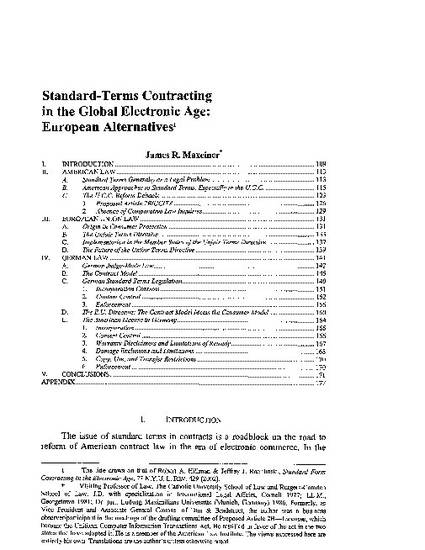
Standard terms, i.e., the fine print on the backsides of form contracts, have confounded American law for decades. 'hat is to prevent users of forms from unfairly exploiting their contract partners? The development of the Internet has made the issue still more important and has given it an international dimension. Standard terms are ubiquitous in Internet and other computer information "shrink-wrap " and "click-wrap " licenses. Failure of business and consumer groups to agree on this issue derailed revisions to the Uniform Commercial Code in 1999 and contributed to the creation of a separate law for electronic commerce, the Uniform Computer Information Transactions Act. United States Internet licenses are subject to foreign standard terms laws. In 1993 the European Union adopted the Unfair Terms Directive, which was inspired by the German Standard Terms Statute of 1976. European laws are much more rigorous than their American counterparts. Typical license terms used domestically by American Internet companies such as AOL and Microsoft are prohibited in Europe. American legal scholarship has largely ignored foreign standard terms laws. This article discusses the issues that have arisen in the United States and shows how they are treated under European Union and German law. It advances the discussion of standard terms in American law and helps prepare American businesses to comply with laws in Europe.
Available at: http://works.bepress.com/maxeiner/61/
